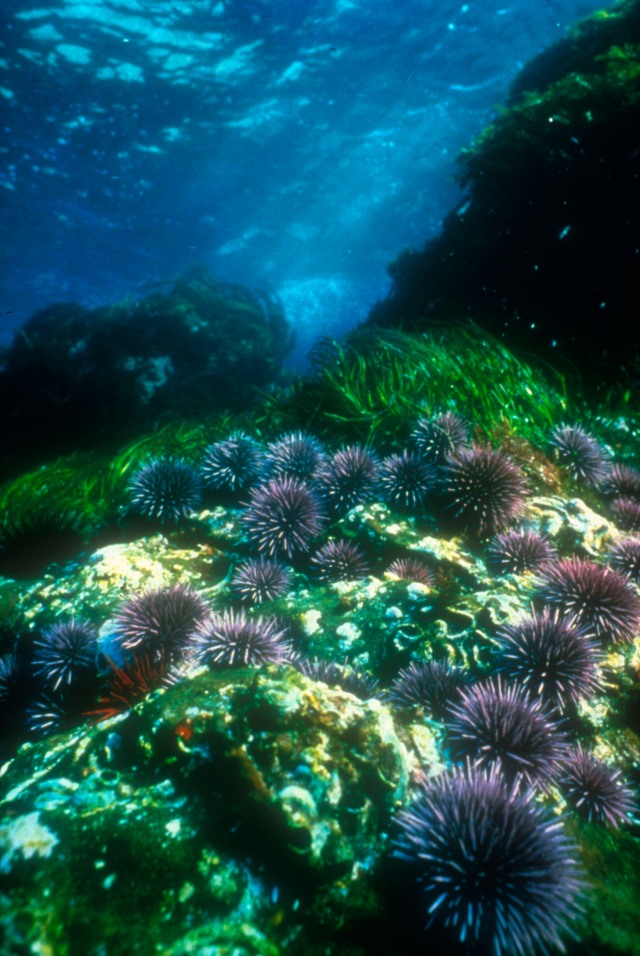They’re cute, they eat sea urchin, and NOW they can save us against climate change. Are sea otters the superhero of the marine mammal world, or what?
In case you needed another reminder of why sea otters are awesome…they could help establish resilience against climate change.
A study published in 2009 discussed the ecosystem consequences of over-fishing on ecosystem resilience, focusing on the impacts of over-fishing of kelp beds in eastern Tasmania. S.D Ling and collaborators conducted experiments inside and outside of kelp inhabited marine protected areas (MPAs). In this case, local fisheries were over-exploiting spiny lobster, which preyed on sea urchin.
Readers of this blog know what happens when you let urchin run amuck…lose the predator, urchin proliferate and it’s a kelp feast the likes of which the urchin king himself couldn’t have imagined. The urchin “commence catastrophic over-grazing” destroying the kelp bed and removing substantial habitat for other important species, reducing biodiversity.
In our case, its sea otters that play the role of keystone predator, but the idea is the same. So what does this have to do with climate change, you ask?
In Tasmania, warming waters are driving the range expansion of the spiny urchin that is driving the loss of kelp beds. The unexpected range expansion of the urchin is problematic in itself—but when paired with the removal of the urchins’ predator, the impact is exponential.
According to Ling et.al “the interactions between multiple human-induced stressors can exacerbate nonlinear responses of ecosystems to climate change and limit the adaptive capacity of these systems.”
Basically, if you’re altering a system in multiple ways, (taking out too many of the wrong kind of fish & changing the water temperature), crazy things will happen.
Urchin barrens are as bleak as they sound—big swaths of the ocean floor with nothing but spiny urchin who have gorged themselves on the kelp that used to act as habitat for, well, everything else. I know my friends are secretly thinking “don’t get her started on the importance of kelp…” It happens to be a favorite theme of mine though. Kelp is incredibly important for biodiversity and productivity. It offers all kinds of ecosystem services such as providing nurseries, shelter and habitat for species, nutrient cycling (including carbon, and these days we can’t get enough of things that suck carbon out of the atmosphere…), protection from storm surges and swells, cute sea otters for tourists to look at, etc.
Resilient ecosystems can better withstand changes. We’re moving in that direction by creating marine protected areas where ecosystems can restore themselves. Letting sea otters expand their range is something else we can do to improve coastal health. And guess what—it’s FREE!
How will climate change impact our coastal ecosystems? Nobody knows, but studies like this suggest that we need to be thinking hard about synergistic impacts, or we’re going to get some pretty unpleasant surprises down the road.
The study referenced above is titled “Overfishing reduces resilience of kelp beds to climate-driven catastropic phase shift” by S.D. Ling et al. in the December 2009 edition of PNAS, vol. 106 no. 52 p. 22341-22345


